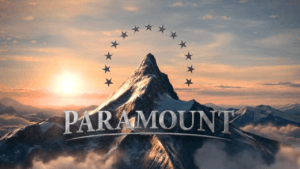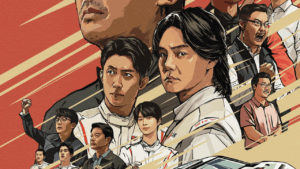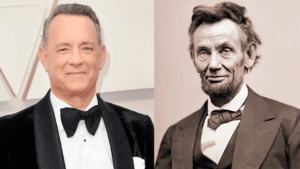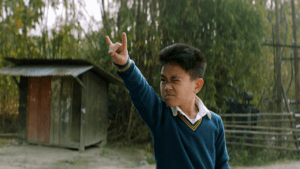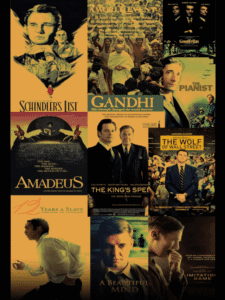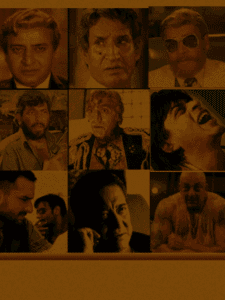In recent years, Iranian filmmakers have emerged as some of the boldest voices in global cinema, relentlessly defying the suffocating grip of government censorship. Iranian filmmakers defying censorship has become a worldwide phenomenon, despite these makers have faced enormous obstacles, political repression, threats, imprisonment, yet their work continues to shake audiences worldwide. By fearlessly challenging the oppressive laws and exposing the brutal realities of Iranian society, they have not only preserved their artistic integrity but also turned cinema into a battleground for truth and resistance.
The Struggle with Censorship
Iran enforces some of the most draconian censorship laws in the world, particularly targeting its film industry. The Iranian government polices every aspect of filmmaking, from scripts to final cuts, ensuring that anything critical of the regime is eradicated before it reaches the public. Filmmakers must constantly navigate this minefield, often resorting to self-censorship to avoid severe retribution. Any mention of human rights abuses, women’s oppression, LGBTQ+ issues, or political dissent is deemed unacceptable by the authorities.
Yet, many filmmakers refuse to be silenced. They have ingeniously found ways to subvert these restrictions, crafting narratives that, while seemingly compliant, carry powerful undercurrents of defiance. Jafar Panahi’s Taxi (2015) cleverly uses the confines of a car as its entire setting, enabling the director to bypass official permits while capturing raw, unfiltered conversations about Iranian society. Mohammad Rasoulof’s There Is No Evil (2020) employs an anthology structure, weaving multiple stories together to expose the devastating consequences of state-sanctioned executions. These bold choices are not mere artistic flourishes, they are acts of rebellion against a regime determined to suppress dissent.
Key Figures Defying Censorship
Leading this charge are directors like Jafar Panahi, Mohammad Rasoulof, and Asghar Farhadi, filmmakers who have risked everything to tell their stories. Panahi, despite an official ban on his work, continues to create films in secret, smuggling them out of Iran to international festivals. His relentless defiance has led to multiple imprisonments, yet he remains undeterred.
Similarly, Mohammad Rasoulof has faced intense persecution. His There Is No Evil, a searing indictment of the death penalty, earned him a travel ban and a prison sentence. The Iranian authorities hoped to silence him, but instead, his voice only grew louder on the global stage.
Asghar Farhadi, while often subtler in his critiques, has still managed to push boundaries. His Oscar-winning A Separation (2011) sheds light on societal hypocrisies and the struggles of women in Iran. Though he avoids overtly political statements, his work speaks volumes about the systemic inequalities deeply ingrained in Iranian society.
Tahmineh Milani, a feminist filmmaker, has also faced intense censorship for her outspoken films on women’s rights. Her film The Hidden Half (2001) was particularly controversial, leading to her arrest and accusations of anti-government sentiment. Despite this, Milani continues to challenge patriarchal norms through her work, giving voice to women’s struggles in Iran. Despite the Iranian government’s relentless attempts to stifle dissent, these films have captivated audiences worldwide, winning accolades at Cannes, Berlin, and Venice. Panahi’s Taxi and Rasoulof’s There Is No Evil both secured the prestigious Golden Bear at the Berlin Film Festival, cementing their places in global cinema history.
This international acclaim is more than just an artistic achievement, it is a direct challenge to the Iranian regime. Each award, each standing ovation, is a reminder that the world is watching, refusing to let these stories be buried. Yet within Iran, access to these films is nearly impossible. Citizens rely on underground screenings, digital piracy, and VPNs to see what their government doesn’t want them to. Even in exile, these filmmakers remain a force, their work smuggled across borders like contraband truth.
The Iranian government has responded to this defiance with brutal crackdowns. Panahi was sentenced in prison in 2010, Rasoulof was banned from filmmaking and faced his own jail sentence, and countless other artists have been threatened or exiled. The message from the regime is clear: dissent will not be tolerated. Yet, these filmmakers refuse to yield. Even under house arrest, even stripped of their basic freedoms, they continue to make films. Their very existence is an act of defiance, a refusal to be erased by a government that fears their power.
Mohsen Makhmalbaf, one of Iran’s most celebrated directors, has also faced severe repression. His film The Silence (1998) was banned in Iran for its allegorical critique of authoritarianism. Forced into exile, Makhmalbaf continues to create films that expose the injustices of the Iranian regime, ensuring his voice remains heard worldwide.
More Articles for You:
- The Role of Women in Filmmaking
- 5 Hindi Movies of 2024 That Prove Small Budgets Can Create Big Impact
The Psychology Behind Iconic Villains: Why We Love to Hate Them
Cultural Impact and Global Support
These filmmakers are not just telling stories; they are waging a war against authoritarianism. Their films serve as a bridge between Iran and the world, exposing the regime’s brutality and giving voice to those who cannot speak openly. The global film community has rallied behind them, demanding justice and calling for the release of imprisoned directors.
The Iranian government’s attempts to silence them have only backfired, drawing even greater international attention to their cause. Film festivals, advocacy groups, and online platforms have stepped up, ensuring that these voices are heard despite every effort to suppress them.
In 2023, as protests erupted across Iran following the government’s violent crackdown on women’s rights activists, many filmmakers stood in solidarity. Their work, once merely subversive, became a direct challenge to the regime. The Iranian government’s desperation to control its narrative has only proven how much of a threat these artists truly are.
At the same time, technological advancements have created new opportunities for resistance. Streaming services, encrypted messaging apps, and international collaborations are enabling filmmakers to bypass censorship like never before. Even as the Iranian regime tightens its grip, digital storytelling is slipping through its fingers.
As global audiences continue to embrace Iranian cinema, the courage of these filmmakers will inspire future generations to resist, to create, and to speak out, no matter the cost. The battle between Iranian filmmakers and their oppressive government is far from over. But with every banned film that reaches an international stage, with every filmmaker who refuses to be silenced, the regime’s control weakens just a little more. These artists are not just making films; they are fighting for the right to exist, to tell their stories, to expose the truth. And as long as they continue to defy censorship, their voices will never be silenced.





